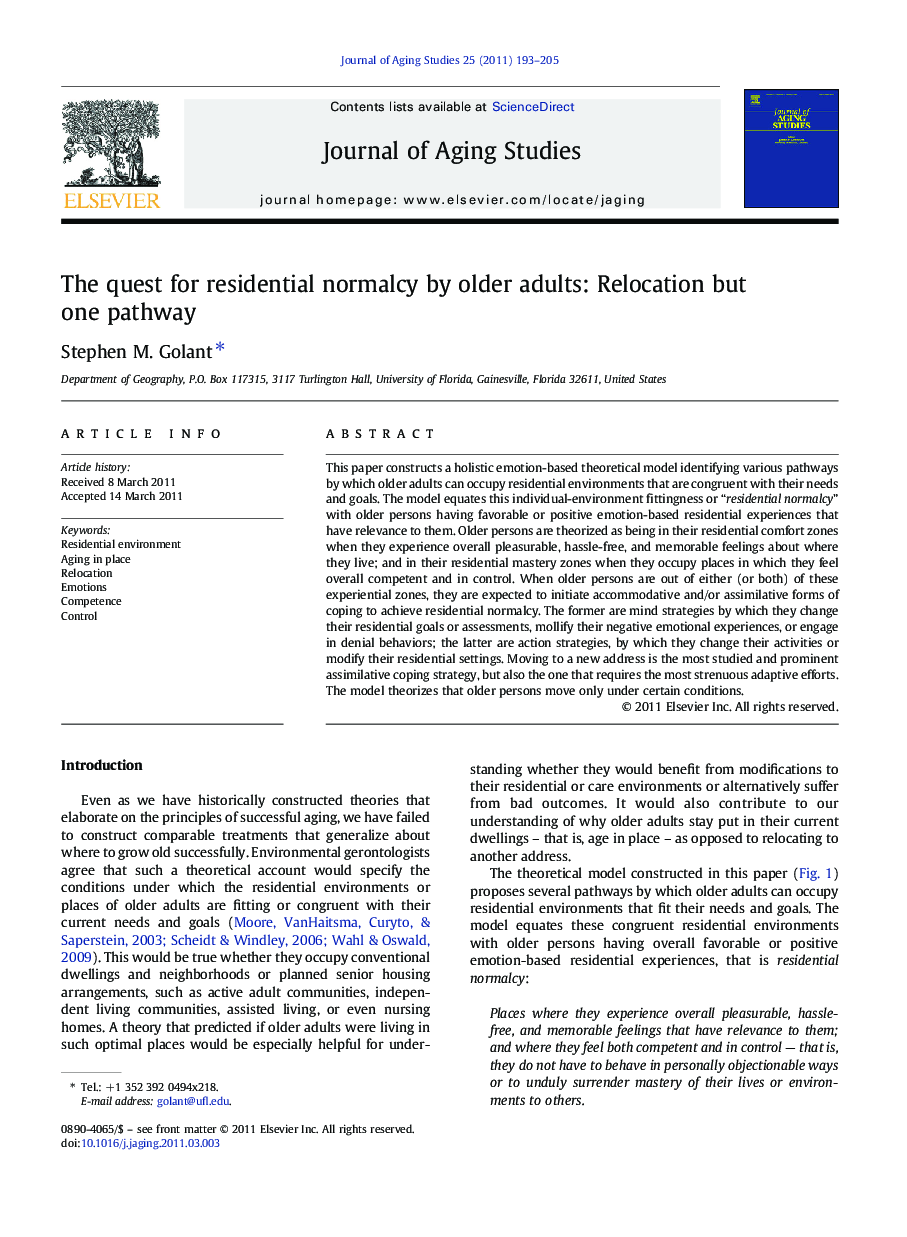| Article ID | Journal | Published Year | Pages | File Type |
|---|---|---|---|---|
| 1081933 | Journal of Aging Studies | 2011 | 13 Pages |
This paper constructs a holistic emotion-based theoretical model identifying various pathways by which older adults can occupy residential environments that are congruent with their needs and goals. The model equates this individual-environment fittingness or “residential normalcy” with older persons having favorable or positive emotion-based residential experiences that have relevance to them. Older persons are theorized as being in their residential comfort zones when they experience overall pleasurable, hassle-free, and memorable feelings about where they live; and in their residential mastery zones when they occupy places in which they feel overall competent and in control. When older persons are out of either (or both) of these experiential zones, they are expected to initiate accommodative and/or assimilative forms of coping to achieve residential normalcy. The former are mind strategies by which they change their residential goals or assessments, mollify their negative emotional experiences, or engage in denial behaviors; the latter are action strategies, by which they change their activities or modify their residential settings. Moving to a new address is the most studied and prominent assimilative coping strategy, but also the one that requires the most strenuous adaptive efforts. The model theorizes that older persons move only under certain conditions.
